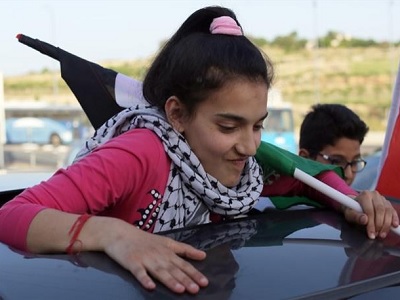
By Romana Rubeo
Modern calendars are no longer punctuated by the rhythm of changing seasons. Instead, every day you wake up and discover that it is not an ordinary day, but the International Day of something or against something.
It is as everybody is expected to think about a single issue for just 24 hours, rarely enough time to develop elaborate understanding of any single issue.
Today, for example, it is the International Day for the Elimination of Violence against Women; thus social media machinery moves into action:
Facebook allows us to “show our support by changing our profile picture”; institutional pages post photos of social initiatives, accompanied by memorable phrases, preferably quotes; TV commercials serve us the same platitudes, stereotyped, “progressive” clichés.
The rhetorical apparatus is safe, and by the end of the day, our consciences are mean to be clean.
But who are the women they are ‘celebrating’? What do they represent? Are they victims of whom? Of what? Are we talking about domestic violence? Or are we talking about social, cultural violence? Are we talking about a patriarchal model to overcome, or about simple rights to be acknowledged?
The truth is, no one cares to focus on the bigger picture, to truly analyze the issues, to consider the deep conflicts of Western society, where feminism is mistaken with Femen and freedom is confused with the centimeters of fabric that are taken away from our skirts.
In this particular day, I couldn’t help thinking about these empty symbols, intellectual fetishes, which seem to be imposed on us as compulsory models. In our image culture, everything becomes a brand; and if it’s not a brand, it simply doesn’t exist.
In fact, a few care to remember particular type of women, who are not as glossy as Femen; women who don’t wear red shoes, to be transformed into installation art; women who often wear hijabs, allegedly making them weak and submissive, at least in Western collective imagination.
Who cares if these women played an active role in resistance against the occupying powers for hundreds of years; if they are an integral part of the struggle for national liberations in many countries around the world; who cares about their “sumud” in the face of brutal Israeli military occupation ..
It’s too hard to label these women fighters, it is impossible to box them; they are not the “conventional victims” who resonance well in the mainstream media.
To understand this breed of strong women, one would have to overcome too many prejudices. Even then, how can one express admiration of women of this caliber when we are limited by social media truisms, the ones that must be expressed by a 140 characters and preceded by a #jesuis hashtag?
I am referring to Palestinian women, and particularly to Palestinian female prisoners; those who actually are captives in Israeli prisons, and those who live in a “bigger cell”, in a country plagued by a terrible military occupation, restricting their freedom of movement, of action, of life.
The vast majority of Palestinian women in Israeli jails are arrested for purely political reasons, in defiance of the most basic human rights; they are charged with crimes that would make anyone cringe, such as “participation in the public student activities“.
In other cases, women are held without charge or trial, under administrative detention. Some of them are even children.
Palestinian women prisoners are subjected to all forms of violence, Israeli officials trample on their basic human rights: they are put into solitary confinement and isolated from all other prisoners for prolonged periods of time. They cannot meet their families and lawyers; they are deprived of fresh air and sunlight and they don’t have access to medical services, even when they suffer from terrible diseases; they are transferred to prisons outside the 1967 occupied territory, in contravention of international law; they are beaten, insulted, strip-searched; they are victims of sexually explicit harassment and they live in constant fear of being assaulted.
“Yes, I was released but I am still a prisoner from within”, were the words of Ikram al-Taweel, from Hebron, who was released after two years of imprisonment.
She is still a prisoner from within and she is still a prisoner tout court: because Israeli occupation is a prison, too. Checkpoints, walls and apartheid practices mark these women’s daily routine; fear, anxiety and anguish are their permanent cellmates.
The stories of these women are painful, extremely painful. And grasping their complexity is not as reassuring as following the same, old cliché, which reduces violence against women to a fetish, easy to sell as long as it looks good on camera.
– Romana Rubeo is a freelance translator based in Italy. She holds a Master’s degree in Foreign Languages and Literature and she is specialized in Audiovisual and Journalism Translation. An avid reader, her interests include music, politics, and geopolitics. She contributed this article to PalestineChronicle.com.




